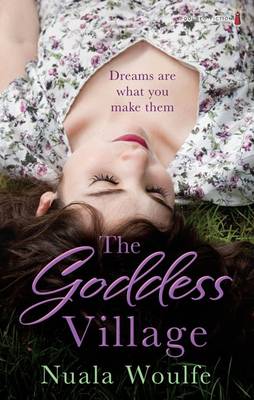Reviewed by Leah on
The novel is definitely more about the village of Cloonsheeda itself, rather than the separate characters. It’s definitely the kind of novel that’s driven by plot rather than characters, and it’s sort of like a book version of an Eastenders episode (or whatever soap opera you watch!). The small village of Cloonsheeda is filled with unhappy people. Married women, single women, German women, and even an unhappy man. So when Demelza Spargo opens up her new Goddess therapy clinic, she’s somewhat deluged with all the problems of the women of Cloonsheeda and as Demelza encourages the women to put themselves first, to find their inner goddesses, the women begin to take her words to heart, making sure to do exactly as Demelza says… With unexpected (and sometimes scary) results.
Another big part of the book is the Bealtaine festival the people of Cloonsheeda are putting on, on May Day. I admit, reading the synopsis made me think it was going to be a novel filled with eco-warrior hippies. (I know, I know.) I know being all eco now is important, and that if we don’t become more eco the world may (or may not) end, but it’s generally not something I like in my fiction so there was another worry there that I wouldn’t get on with the book, but, thankfully, the whole eco-thing isn’t thrown in your face. In fact, there’s very little about the whole eco thing, it’s there but it’s not always in your conscience, you’re not beat around the head with it. In fact, I actually liked village life; I found the entire goddess/eco-village thing fascinating, and it was really quite readable.
I really enjoyed reading The Goddess Village. Yes, there were a few too many characters, and some did get a bit pushed out on account of others, but some did make an impression so it’s not as if the book was so overrun I couldn’t name the characters. I could, and I could easily keep up, too. I loved the soap-opera nature of the characters and I loved the little eco-village of Cloonsheeda. Nuala’s writing is hugely enjoyable and I just really liked the book. I didn’t know what to expect when I began it, having not read any of Woulfe’s previous two books and having my pre-conceived notions pretty much taken from the lengthy synopsis above (which is somewhat terrifying a synopsis!). I was pleasantly surprised with the book and there wasn’t much wrong with it and it’s definitely a book I’ll remember. I’ll definitely be keeping my eye out for Woulfe’s previous novels, and The Goddess Village was a book I thoroughly enjoyed.
Reading updates
- Started reading
- 6 November, 2011: Finished reading
- 6 November, 2011: Reviewed
